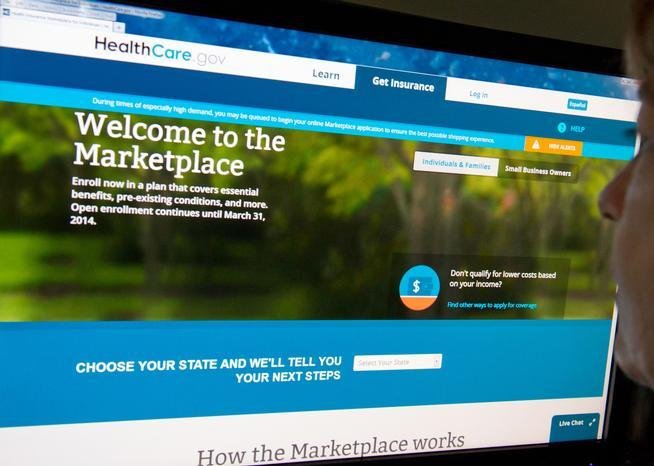Tips & Advices
Colorado to see 28% spike in health insurance on individual market

Congress could still act to reduce a 28% spike in premiums on Colorado’s individual health-insurance marketplace next year, but time is running short as open enrollment nears.
The largest factor behind the anticipated surge in premiums is that higher federal subsidies put in place during the pandemic will expire Dec. 31, said Adam Fox, deputy director of the Colorado Consumer Health Initiative.
About 321,000 people received subsidies to buy insurance on Colorado’s marketplace last year.
When those subsidies end, customers will have to pay more for their health coverage, and insurance companies are betting that healthier people will balk, leaving a group that’s sicker on average and includes fewer people to spread out the cost of care, he said.
People who receive health coverage through their employers are in separate pools, so the end of the subsidies won’t affect them directly. Most plans increase their premiums every year to cover rising costs of health care and medications.
Republicans, who control both houses of Congress, didn’t include an extension of the subsidies in their recently passed bill to make other tax cuts permanent, which also touched on health insurance, food assistance, green energy and border security.
Colorado’s Democratic members of Congress have said they’ll push for a separate bill to extend the enhanced subsidies, but House and Senate leadership haven’t shown interest in taking one up.
The Colorado Division of Insurance reported that companies selling on the individual marketplace submitted requests to increase their rates by an average of 28.4% next year, with larger increases on the Eastern Plains and Western Slope.
That put Colorado at the higher end for potential increases, compared to other states that have released data. A sample of 105 insurers from 19 other states found proposed increases ranging from less than 5% to more than 30%, according to KFF, a nonprofit that studies health care markets.
How much of that increase people have to shoulder will depend on their incomes. The enhanced subsidies lowered the share of income that a household had to pay toward insurance coverage, to the point that people just above the cutoff to be eligible for Medicaid paid nothing. That will change in January.
Higher earners also will take a hit. When the Affordable Care Act passed, no one earning more than four times the federal poverty line would receive any subsidies. The enhanced subsidies meant that a family of four earning more than $128,600, the cutoff for this year, could receive tax credits to bring their insurance costs down to no more than 8.5% of their incomes.
If Congress acted this summer to extend the enhanced subsidies, the state would work with insurers to adjust their premiums and lower costs for consumers, said Katie O’Donnell, director of communications and public engagement for the Colorado Department of Regulatory Agencies, which includes the Division of Insurance.
The state finalizes insurance rates in October and open enrollment begins Nov. 1, giving lawmakers a relatively narrow window to make changes.
Even if the enhanced subsidies continued, premiums would still go up, though the increase would be closer to the 5% to 10% Colorado has seen in recent years, Fox said. Smaller changes made by the Trump administration have increased uncertainty for insurance companies, though not nearly as drastically as losing the higher subsidies, he said.
“Insurance markets hate uncertainty, and there are a lot of changes happening to the individual market,” he said.
Colorado also will have less money available to limit rate increases through its reinsurance program next year, Fox said.
Reinsurance backstops insurance companies, so they don’t pay as much for sick customers who need expensive care. That allows them to keep premiums lower, and means the federal government doesn’t have to pay out as much in tax credits to subsidize consumers. The federal government then gives that money back to the states that have reinsurance programs, allowing them to keep lowering premiums.
With the enhanced subsidies gone, the federal government won’t be on the hook for as much money, meaning the state will have a smaller pot of funds to limit increases, Fox said.
The rate increases that companies selling on the individual market in Colorado requested are:
- Kaiser Foundation Health Plan of Colorado: 15.3%
- SelectHealth: 19.3%
- Denver Health: 23.4%
- Cigna Health and Life Insurance Company: 29.4%
- Anthem (HMO CO Inc.): 33.6%
- Rocky Mountain HMO (United Healthcare): 36.4%
Older people and those who live in rural areas will see larger increases in premiums on the individual marketplace, though the remaining subsidies will blunt some of the impact.
The cost to insure a 21-year-old in Denver would rise by $1,057 a year, while the increase would be $5,186 a year for a 60-year-old on the Western Slope, according to the Division of Insurance.
The average increases by region would be:
- Colorado Springs: 24.2%
- Denver: 25.4%
- Boulder: 26.7%
- Greeley: 29.0%
- Fort Collins: 29.4%
- Pueblo: 30.4%
- Eastern Plains: 33.4%
- Grand Junction: 38.4%
- Western Slope: 38.8%
The Division of Insurance hasn’t released any projections of how many people might drop their coverage altogether, or switch to an option with lower monthly premiums but higher out-of-pocket costs if they get sick. Either move could leave individuals with larger medical bills and health care providers with greater uncompensated care costs.
Insurance companies don’t always get the increases they ask for, but typically the requested rates are close to the approved ones, Fox said.
The division examines the insurers’ estimates of how much it will likely cost them to cover customers in the coming year, to ensure they collect enough premiums to remain financially stable, but don’t make excessive profits.
Given all of the changes coming this year, the division will have a tougher time making the case that insurers don’t need significant increases, he said.
“The upheaval is hard to combat,” he said.
Sign up for our weekly newsletter to get health news sent straight to your inbox.
Updated 10:20 a.m. July 22, 2025: This story has been updated to correct figures for premiums that a 21-year-old and 60-year-old would pay. Those are annual costs.
Originally Published:
Tips & Advices
Martin Lewis issues warning to anyone who has booked a holiday abroad | Lifestyle

Martin Lewis has issued an urgent warning to anyone who has booked a holiday abroad this year.
The financial guru has urged people to make sure they get travel insurance as soon as they book and not wait until the day before they travel.
“Travel insurance is not just to cover while you are away,” he warned during his Martin Lewis Money Show Live on Tuesday (4 March).
“It is also important to cover you if something stops before you go.
“Get it as soon as you book. If you don’t have it and it’s already booked, do it now.”
Tips & Advices
Venus Williams Reveals She Returned to Tennis Over Health Insurance

Venus Williams has claimed that her return to tennis, after 16 months away from the sport, was because she needed the health insurance.
“I had to come back for the insurance,” she said in an on-court interview following her Mubadala Citi D.C. Open victory against Peyton Stearns in Washington on Tuesday.
“They informed me this year that I’m on COBRA, so it’s like, I got to get my benefits on,” she said, giggling to interviewer Rennae Stubbs, which prompted a chorus of laughter from those watching in the stands.
Williams’ victory made her the oldest woman to win a WTA singles match since 2004, when Martina Navratilova, aged 47, triumphed at Wimbledon.
Why It Matters
Williams confession sheds light on the brutal reality of healthcare costs in America at present. If a professional athlete and a celebrity, with a multi-million net worth, says she needs to continue playing her sport to secure access to health coverage—even if it may have been somewhat tongue in cheek—it begs the question of how those without such hefty assets can possibly afford to pay their medical bills.
In a KFF study this year, six in ten Americans were found to be somewhat worried about affording health care services or paying unexpected medical bills for themselves and their families.
This was a significantly larger proportion than those who were concerned about affording housing costs, transportation expenses, utilities and food for their families.
Nick Wass/AP
What To Know
“I’m always at the doctor, so I need this insurance,” Williams said after her victory.
In 2023, during a Wimbledon match, Williams badly injured her knee, and she previously shared how challenging her recovery was.
She battled through the pain to play in that year’s U.S. Open, but was eliminated early, and then took some time out to recover. She also reportedly had to undergo surgery last year to treat uterine fibroids.
The Consolidated Omnibus Budget Reconciliation Act (COBRA) enables Americans to continue receiving health benefits, provided by their group health plan, for limited periods of time under certain circumstances.
These circumstances might include voluntary or involuntary job loss, a reduction in hours worked, transition between jobs, death, divorce and other life events.
In some cases, individuals may receive benefits for 36 months, but if their working hours were reduced, or job terminated, they can only receive COBRA benefits for 18 months.
Venus Williams after becoming the oldest WTA match winner since 2004:
“I had to come back for the insurance, because they informed me this year that I’m on cobra. So it’s like, I got to get my benefits on” 😭😭😭😭
— The Tennis Letter (@TheTennisLetter) July 23, 2025
At the age of 45, Williams would not be able to qualify for Medicare—the federal health program available to those over the age of 65.
Given her $95 million net worth, generated via significant income from tournaments and sponsorships, despite her not having a fixed monthly income, she would also not qualify for Medicaid—the federal health program for Americans with limited income and resources.
Williams entered the Citi Open on a wild card, after not playing on the WTA Tour since March 2024. Nevertheless she still beat her opponent, Stearns—22 years her junior—6-3, 6-4.
What People Are Saying
Williams said after her victory: “I think I just attacked the whole time. It’s just trying to find the right balance between going too hard and not enough. It’s the same because this is what I do, but at the same time, it was imperative for me to do it. Now I don’t have to do this, but I have the same fire and the same want to win. In some ways, I’m still getting back into that. When you do it every day, everything is natural. Not as natural feeling now, but I hope I can get back to that.”
She added: “I think it was a big win for me today. Like I said, it’s not easy. It won’t be easy. It’s not easy for anyone out here. So I know I’ll have to fight for every match, but I’m up for that.”
What Happens Next
Williams had already secured a victory on Monday during a doubles match with her partner Hailey Baptiste. She is set to play Magdalena Frech, the Polish fifth seed, in the singles on Thursday.
Tips & Advices
Which banks offer free travel insurance for customers?

If you do not have appropriate insurance before you travel, you could be liable for emergency expenses, including medical treatment, which may cost thousands of pounds.
For example, breaking your leg in Spain could end up costing you over £25,000, according to official government guidance.
Slightly steep, isn’t it? Well, if you don’t want your holiday ruined, then you will definitely want to set about getting some travel insurance.
Luckily, a lot of banks offer that.
Whether your next trip abroad involves seeing the sights 👀 relaxing on the beach 🏖️ or extreme sports ⛷️ follow @FCDOtravelGovUK‘s advice and check that your travel insurance covers you.
Find out more at https://t.co/nOvxJIuvgV pic.twitter.com/0gwAuzlbPO
— Heathrow Airport (@HeathrowAirport) July 20, 2025
What your travel insurance should cover
Check whether your policy covers:
- the full length of your trip (many policies have a maximum trip length and/or an annual limit on how much time in total you can spend outside the UK)
- treatment in state or private hospitals (emergency treatment and hospital bills can be enormously expensive)
- emergency transport, such as an ambulance: this is often charged separately to other medical expenses and emergency travel home on medical grounds can be very expensive
- pre-existing medical conditions: declare existing conditions or pending treatment or tests so that you are covered if there are related complications during your trip; failing to declare something may invalidate your travel insurance
- all activities you may undertake on holiday, such as sports or adventure tourism (you may need specialist insurance or an add-on for some activities)
- all the places you intend to visit, even if only in transit, in case anyone needs emergency treatment in a transit country
- repatriation costs if you or a family member die abroad
- getting home after medical treatment if you cannot use your original ticket
- reasonable costs for a family member or friend to stay with you, or travel out to accompany you home if required
The banks that offer travel insurance:
Nationwide:
The FlexPlus account comes with worldwide family travel insurance from Aviva.
NatWest:
Offers travel insurance with their Platinum and Black accounts, covering families (you, your partner, and dependent children). Their Silver account covers only the primary account holder and any joint account holders.
HSBC:
The Premier Bank Account includes worldwide travel insurance from Aviva.
Lloyds Bank:
The Platinum account provides worldwide family travel insurance, AA breakdown cover, and mobile phone insurance for a monthly fee.
Recommended reading:
Monzo:
Offers travel insurance as part of their Max account, which can also include family cover.
The Co-operative Bank:
The Everyday Extra account includes winter sports cover, personal accident cover, and emergency medical expenses, with no excess on claims.
-

 Brand Stories2 days ago
Brand Stories2 days agoBloom Hotels: A Modern Vision of Hospitality Redefining Travel
-

 Brand Stories1 day ago
Brand Stories1 day agoOlive Living: India’s Intelligent, Community-Centric Hospitality Powerhouse
-

 Destinations & Things To Do3 days ago
Destinations & Things To Do3 days agoUntouched Destinations: Stunning Hidden Gems You Must Visit
-

 AI in Travel3 days ago
AI in Travel3 days agoAI Travel Revolution: Must-Have Guide to the Best Experience
-

 Brand Stories3 weeks ago
Brand Stories3 weeks agoVoice AI Startup ElevenLabs Plans to Add Hubs Around the World
-

 Brand Stories2 weeks ago
Brand Stories2 weeks agoHow Elon Musk’s rogue Grok chatbot became a cautionary AI tale
-

 Asia Travel Pulse3 weeks ago
Asia Travel Pulse3 weeks agoLooking For Adventure In Asia? Here Are 7 Epic Destinations You Need To Experience At Least Once – Zee News
-

 AI in Travel3 weeks ago
AI in Travel3 weeks ago‘Will AI take my job?’ A trip to a Beijing fortune-telling bar to see what lies ahead | China
-

 Brand Stories3 weeks ago
Brand Stories3 weeks agoChatGPT — the last of the great romantics
-

 Brand Stories2 weeks ago
Brand Stories2 weeks agoHumans must remain at the heart of the AI story













You must be logged in to post a comment Login